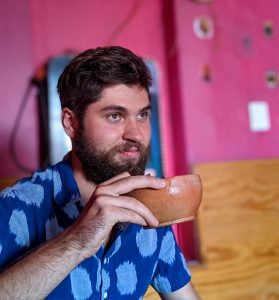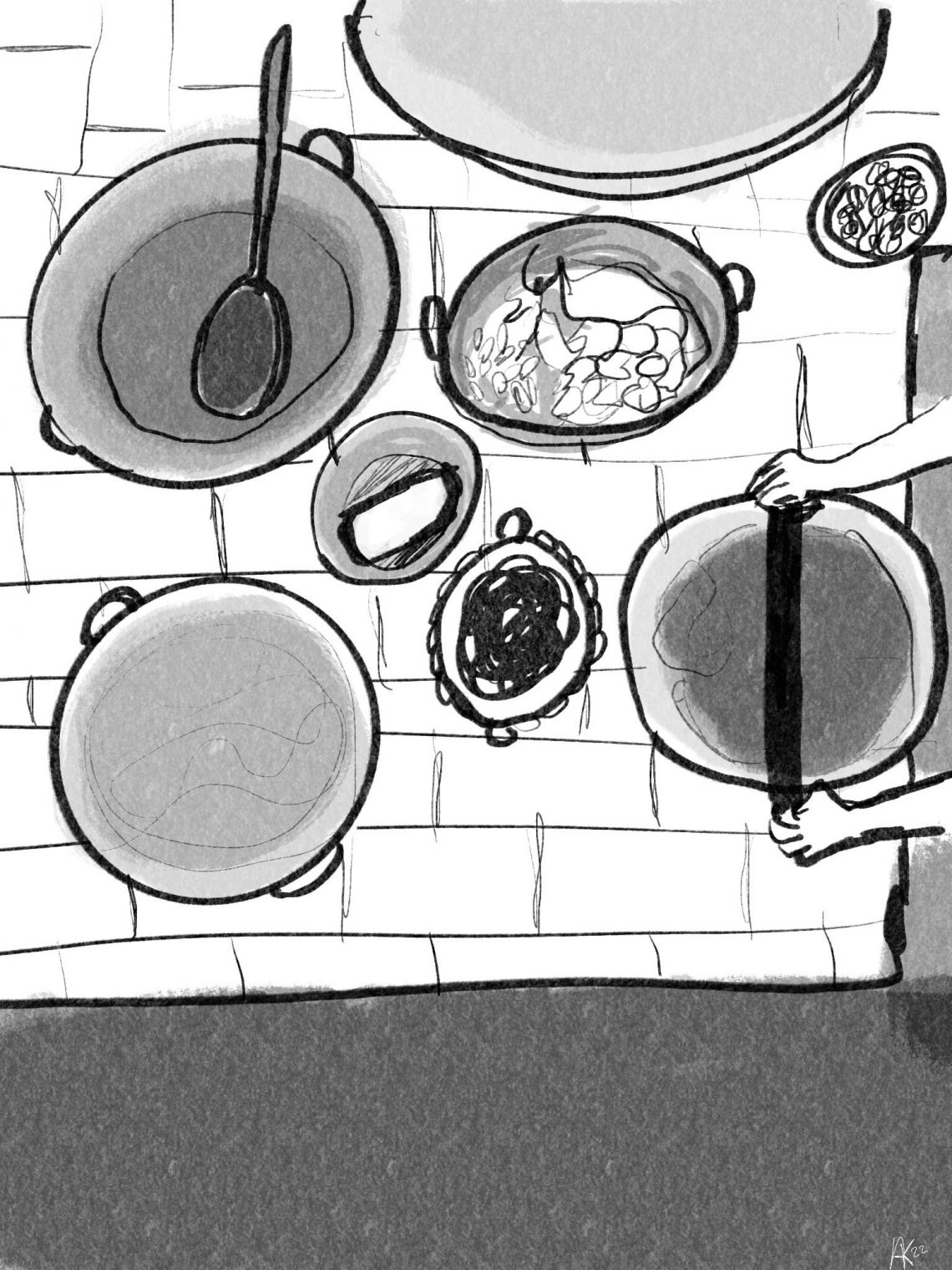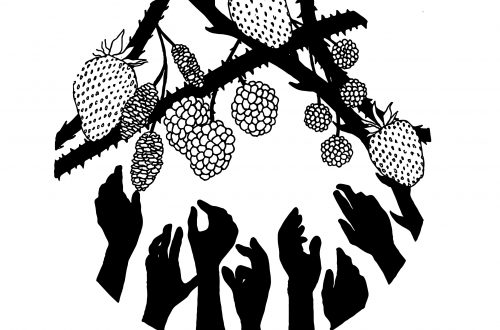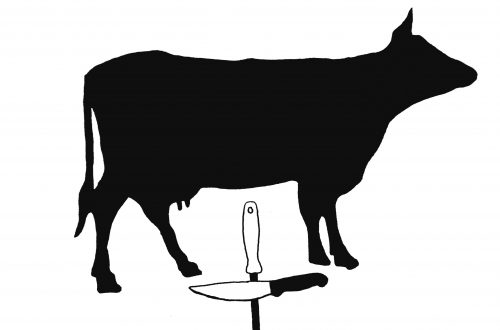by Nikita Ephanov
Nikita’s essay appears in episode 35 of The Dirty Spoon Radio Hour.
The taxi cab slowed, swerving right and left to avoid potholes on the unpaved road. “Derecho y luego derecha,” I told the driver in rudimentary Spanish, careful not to confuse the similar words.
Although it was my first visit to Oaxaca, dirt roads accumulated the journeys I’d undertaken before. Every bump precipitated recollections. I interlinked my gaze with the stare of a pedestrian passerby. They inspected my presence inside the cab. The taxi bumped again.
Restaurant Alfonsina is a house indistinguishable from its neighbors.
A grooved tin roof, brown walls, the verdant grass evincing rich soil: the palette of Oaxaca.
Surrounded by a wrought iron fence, tall enough to deter an intruder but wide enough to exchange some produce- the morning milk, a loaf of bread, freshly laid eggs.
A lone tree stands in the center of the yard. Its branches are thin, yet capable of yielding fruit. Two of its apples lay on the ground underneath a swing.
I watched it sway from the gentle breeze, and the sweet, delicate air pecked me with recollections of early childhood. Specifically of my grandmother’s country house -the Russian dacha.
At six years of age, I’d languish under the shade of an apple tree on that property. Its branches were too low for an adult but a welcoming cocoon for a child. I could not see much from the vegetated shade, but it felt more suitable to gaze nowhere in particular. The smell of dough emanating from the oven, the clunks of heavy ceramic pots informed my senses. When food was placed on the table in the garden, I’d hear my grandmother call my name.
My pursuit of discovering food links with my quest for novel sensations.
During my journeys, I wrongly thought the most memorable meals were the ones that arrive with a visceral shock: a sheep’s head, hair-intact served in a clay bowl in Albania. Noodle-soup, dotted with tiny snails, slurped and crammed elbow to elbow on foot-tall plastic chairs in Vietnam.
“Nikita, your table is ready,” said the hostess in Alfonsina.
When I sit down, I watch smoke drift from the comal– a large circular griddle with hot charcoal embers underneath. Several women tend to the flame while placing meats, vegetables, and flattened massa – freshly-made corn dough – on the comal. Fat dripped into the embers, illuminating rays of sunlight. Voices hum in the background, not like the usual clamor of a restaurant, but rather with the comfortable vivacity of a home.
Home-cooked.
I think of the term as a description of the emotions food elicits rather than the location of where it is prepared. At Alfonsina, domestic is blurred with business, food is combined with ritual, and I’m reminded that cooking is an action, a process greater than the result.
Jorge Leon saved funds to open Alfonina while working for Enrique Olvera, Mexico’s most acclaimed chef. He gained fine-dining experience in both New York and Casa Oaxaca, Oaxaca’s most famous restaurant. Collaborating with his mother, Elvia, Leon envisioned what is now Alfonsina in their family home. Animals loiter, and neighbors come by for some tortillas. The restaurant gate continuously clicks open and closed.
Wafted by smoke, coaxed with ritual, crafted with care, Alfonsina preserves food through motion. Each molded ball of massa looks indistinguishable from the last, but it’s more significant than any created previously.
Alfonsina’s existence celebrates the perpetuation of knowledge, the type contained in Elvia’s hands. The kind that offers generational nourishment like what I witnessed for the first time age 6, my eyes below the kitchen counter, peering up as my grandmother dusted flour on a cutting board for pierogi. There’s satiation from a delicious meal and the satisfaction of a moving meal. A meal that cradles, carries, and sustains.
Eating at Alfonsina, the flavors of Oaxaca unite with the sensations of my distant past. My Russian Babushka’s food and an acclaimed Mexican chef’s kitchen merged into a singular entity: the tenderness of nourishment.
You can find more of Nikita’s original writing at Eater, Sliced, Tried & True, and on their website.
Original artwork by Alex Knighten
About the Author
 Nikita Ephanov has written on food, coffee, technology, and travel for publications like Eater, Intrepid Times, and Sliced, and serves as a staff writer for Tasting Table. His work focuses on inclusivity and cultural diversity, emphasizing food as a vehicle for the shared human experience. He believes eating someone’s offerings is sensing their story through flavor: whether told by a remarkable chef or sung by the noteworthy voices of ordinary people. As a cook, traveler, and dedicated researcher, he strives to bridge the gap between the unfamiliar, trending, and accessible. His website is https://
Nikita Ephanov has written on food, coffee, technology, and travel for publications like Eater, Intrepid Times, and Sliced, and serves as a staff writer for Tasting Table. His work focuses on inclusivity and cultural diversity, emphasizing food as a vehicle for the shared human experience. He believes eating someone’s offerings is sensing their story through flavor: whether told by a remarkable chef or sung by the noteworthy voices of ordinary people. As a cook, traveler, and dedicated researcher, he strives to bridge the gap between the unfamiliar, trending, and accessible. His website is https://






